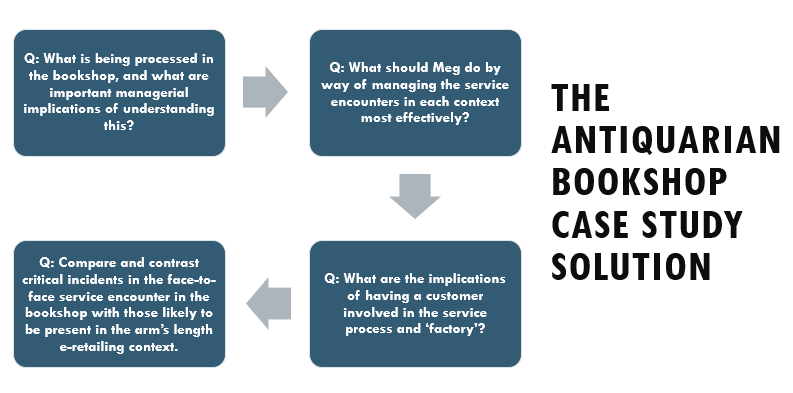This mini case (antiquarian bookshop) is intended to provide a means of exploring in an applied way many of the key concepts explained and discussed in this chapter.
Q1. What is being processed in the bookshop, and what are important managerial implications of understanding this?
Students are expected to identify and discuss three categories of service processing that could occur in this high contact/involvement context: people processing, mental-stimulus processing and information processing.
Important managerial implications for bookshop case
- the level of customer involvement and contact
- the need to accommodate the needs and requirements of each customer on an individual basis
- the need for staff to be well informed, courteous and helpful
- the nature of the bookstore environment and its ability to attract and hold customers
- customer expectations – how they are set and met
- customer perceptions – how they are purposefully managed
Q2. Compare and contrast critical incidents in the face-to-face service encounter in the bookshop with those likely to be present in the arm’s length e-retailing context.
Students are expected to discern differences between the two delivery modes. For example, potential critical incidents in the bookshop itself are likely to reside in the interaction and information exchanged between the customer and service personnel, points at which the customer as browser seeks information and advice, the placing and fulfilment of special requests and orders, and the purchasing process.
By contrast, critical incidents in the e-retailing context are likely to occur at the point and time the customer wants to place an order, execute their payment details, and specify their delivery requirements, but may also occur as the customer navigates their way through the site.
Q3. What should Meg do by way of managing the service encounters in each context most effectively?
Students should see that each setting provides its own distinctive considerations that need to be thought through, planned and managed. Reflecting the style and ambience of the bookstore on the website will also pose a particular challenge of importance to the end of ensuring, as much as possible, that the electronic encounter is complementary to that experienced in the bookstore itself.


